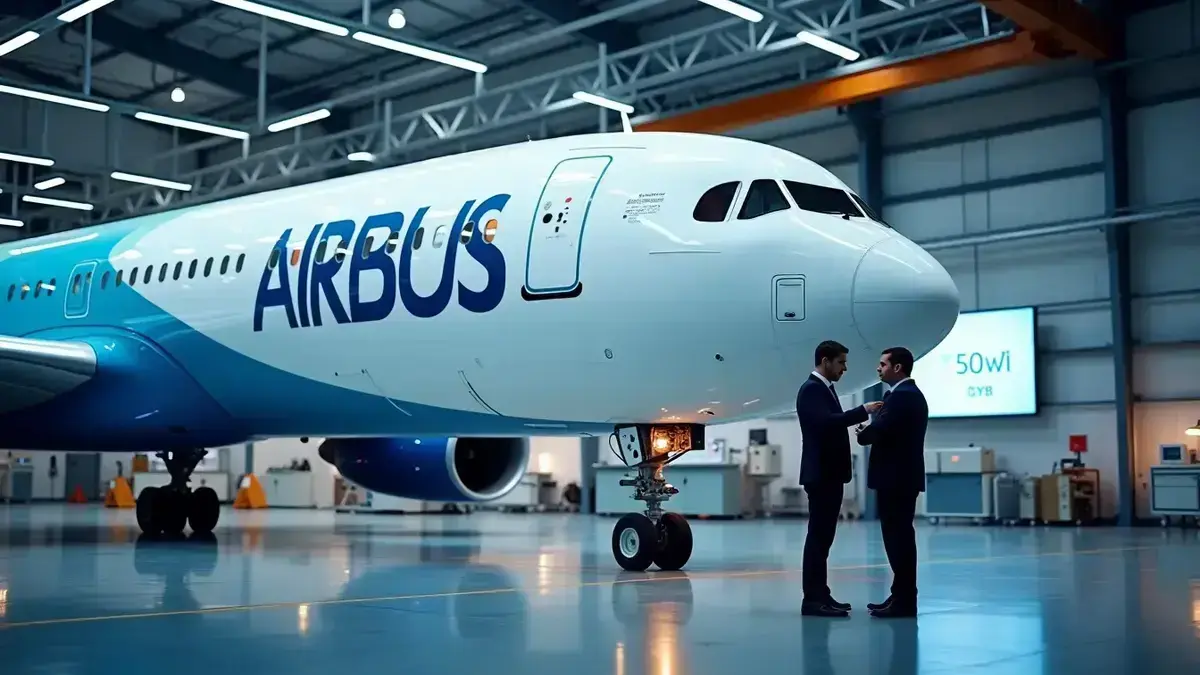Airbus has recently decided to postpone the commercialization of its hydrogen aircraft due to slow progress in technological development. The original goal of 2035 is now uncertain, while the budget allocated to the project has been reduced by 25%. Although hydrogen holds promise, it presents challenges in terms of availability and ecosystem, forcing the company to consider strategic changes to ensure sustainable aviation.
The key news
- Airbus delays the commercialization of its hydrogen aircraft.
- Progress is deemed slow, and the target for 2035 is now uncertain.
- A 25% reduction in the project’s budget has been announced.
- Energy issues remain that require collaboration and investment.
Airbus Delays the Commercialization of the Hydrogen Aircraft
Airbus’s ambitious project to commercialize hydrogen aircraft faces new challenges. Initially planned for 2035, this goal is now influenced by the reality of technological development. The progress, considered too slow, has led the aerospace giant to revise its timelines and adjust its strategy.
Progress Considered Too Slow in Technological Development
Innovations related to hydrogen require a strict pace, and Airbus appears to be falling behind expectations. Despite the immense potential of hydrogen as a renewable energy source, technological advancements encounter significant hurdles, raising questions about the feasibility of such an initiative within the set timeframe. The complexity of these technical challenges emphasizes the need for increased support within the industry.
Original Goal of 2035 Now Uncertain
The uncertainty surrounding the 2035 timeline casts doubt on the feasibility of this ambitious goal. The accumulation of delays in the development of hydrogen aircraft could lead to a complete reevaluation of the timeline, making the future of this project more unclear than ever. Airbus will need to juggle these unforeseen circumstances while remaining committed to its environmentally friendly agenda.
25% Reduction in the Budget Allocated to the Project
In a time of delays, Airbus has taken drastic measures by reducing the budget allocated to its hydrogen aircraft project by 25%. This decision reflects a pragmatic approach to an uncertain environment. Such cuts may also impact the scope of research and undiscovered plans, complicating the implementation of this future goal even further.
Hydrogen: Promising but Challenges in Availability and Ecosystem
Despite the focus on hydrogen as a promising energy solution for sustainable aviation, several challenges must be overcome. The availability of hydrogen and the need for a tailored ecosystem are major concerns. The production, storage, and distribution of hydrogen present logistical and technical challenges that must be addressed to make this alternative solution a reality in the aviation market.
Airbus Commitment to Stay Determined to Achieve This Goal
Nevertheless, Airbus remains committed to its pursuit of sustainable aviation. The company continues to view innovation and research as essential levers in tackling these challenges. The long-term commitment to the commercialization of hydrogen aircraft underscores its understanding of current environmental issues and its willingness to be part of the solution.
Competition with Other Aviation Solutions
Faced with the complexities of the energy transition, Airbus must also contend with growing competition from other aviation solutions such as renewable fuels and electric engines. Each of these options has its unique challenges and opportunities, making it increasingly crucial for Airbus to skillfully navigate this competitive landscape. The ability to innovate in alternative technologies will be vital in securing its leading position in sustainable aviation.
Complex Energy Transition Requires Global Collaborations and Investments
The transition to sustainable aviation cannot occur without close collaboration between industry players, governments, and investors. Airbus needs to foster open dialogue and partnerships with other companies and organizations to maximize available resources and expertise. Global investment in this transition is crucial to tackling the challenges posed by hydrogen while creating a cleaner energy future.
Strategic Changes Needed to Achieve Sustainable Aviation
To meet its goals, Airbus will also need to implement strategic and operational changes. This includes not only reevaluating priorities in its project portfolio but also integrating new emerging technologies that can facilitate the transition. The key will be to create an agile framework that can adapt to the rapid technological evolution and market expectations while keeping environmental impact in focus.

